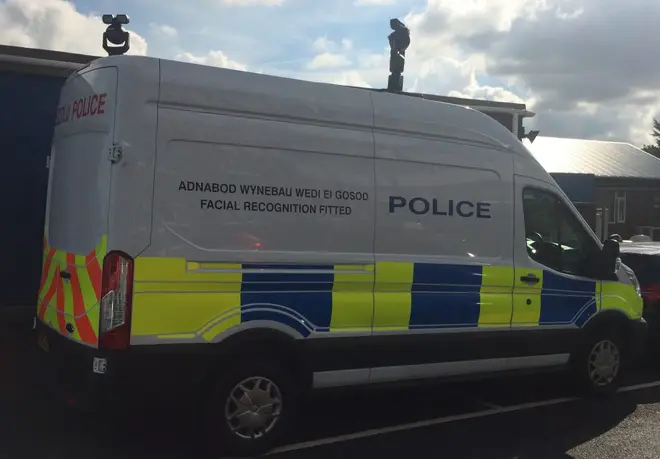
Simon Marks 4pm - 7pm
23 June 2020, 07:11

An activist's fight against the police use of facial recognition technology will reach the Court of Appeal on Tuesday in what is believed to be a world first.
Ed Bridges brought the legal action at the High Court against a ruling that South Wales Police did not breach his human rights by using automated facial recognition (AFR) technology.
The police force has been trialling the technology at public events since 2017 and Mr Bridges has claimed after face was scanned while doing Christmas shopping in 2017 and at a peaceful anti-arms protest in 2018.
Deputy Chief Constable Richard Lewis said it used biometric data analysis "lawfully and proportionately".

His lawyers argued the use of automatic facial recognition (AFR) by South Wales Police caused him "distress" and violated his privacy and data protection rights by processing an image taken of him in public.
Mr Bridges brought his initial legal challenge after he saw a South Wales Police vehicle equipped with AFR cameras while he was taking a lunch break, in Cardiff he then claims he witnessed the vehicle at a peaceful protest at an arms fair in the city.
He argued the AFR system analysed his biometric data - digital mapping of a person's facial features - without his knowledge or consent.
His case was dismissed in September last year by two leading judges, who said the use of the technology was not unlawful.

Met Police tell LBC about new facial recognition
Lord Justice Haddon-Cave and Mr Justice Swift concluded that they were "satisfied" the current legal regime is adequate to "ensure appropriate and non-arbitrary use of AFR" and that the force's use to date of the technology has been "consistent" with human rights and data protection laws.
But Mr Bridges was given permission to appeal against that ruling in November, and his case will be heard by three leading judges at the Court of Appeal in London on Tuesday.
Master of the Rolls Sir Terence Etherton, President of the Queen's Bench Division Dame Victoria Sharp and Lord Justice Singh will consider his appeal from 10.30am.

Will facial recognition systems infringe upon religious minorities?
Mr Bridges crowdfunded his legal action against the force and is supported by civil rights organisation Liberty, which is campaigning for a ban on the technology.
Facial recognition technology maps faces in a crowd by measuring the distance between features then compares results with a "watch list" of images - which can include suspects, missing people and persons of interest.
South Wales Police began conducting a trial of the technology since 2017, with a view to it being rolled out nationally, and is considered the national lead force on its use.